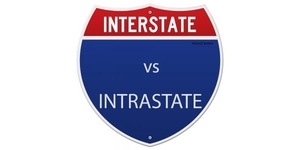
As a result of the COVID-19 pandemic and advances in technology, more lawyers are working remotely than ever before. This development has given lawyers the flexibility to improve work-life balance. However, remote practice raises ethical compliance issues. For example, a lawyer practicing virtually must ensure that the lawyer maintains client confidences while utilizing virtual meeting platforms and cloud storage facilities. (We previously addressed some of the associated practical and ethical issues here.) Moreover, a remotely-practicing lawyer must ensure that the lawyer avoids the unauthorized practice of law.
ABA Formal Opinion
On December 16, 2020, the American Bar Association Standing Committee on Ethics and Professional Responsibility released a formal opinion to help lawyers better understand the application of the ABA Model Rules to lawyers practicing remotely, particularly when working in a jurisdiction in which they are not licensed. See ABA Formal Opinion 495. The Committee opined that:
Lawyers may remotely practice the law of the jurisdictions in which they are licensed while physically present in a jurisdiction in which they are not admitted if the local jurisdiction has not determined that the conduct is the unlicensed or unauthorized practice of law and if they do not hold themselves out as being licensed to practice in the local jurisdiction, do not advertise or otherwise hold out as having an office in the local jurisdiction, and do not provide or offer to provide legal services in the local jurisdiction. This practice may include the law of their licensing jurisdiction or other law as permitted by ABA Model Rule 5.5(c) or (d), including, for instance, temporary practice involving other states’ or federal laws. Having local contact information on websites, letterhead, business cards, advertising, or the like would improperly establish a local office or local presence under the ABA Model Rules
See ABA Formal Opinion 495.
According to Formal Opinion 495, a lawyer physically present in a jurisdiction in which the lawyer is unlicensed to practice may practice if the lawyer:
- Does not establish an office or other systemic presence in that local jurisdiction;
- Does not “hold out” a presence or availability to perform legal services in that local jurisdiction; and,
- Does not actually provide legal services for matters in that local jurisdiction, unless otherwise authorized.
State Advisory Opinions
Several state advisory committees have also weighed in on the issue of lawyers working for extended periods of time in locations in which they are not licensed. For example, in May of 2019, the Utah Ethics Advisory Opinion Committee opined that a lawyer licensed in another state who establishes a home in Utah and practices law for clients from the state where the lawyer is licensed and neither solicits Utah clients nor establishes a public office in Utah is not engaged in the unauthorized practice of law. See Utah Ethics Advisory Opinion Committee, Opinion No. 19-03.
Similarly, the District of Columbia Court of Appeals Committee on Unauthorized Practice of Law published Opinion Number 24-20 identifying circumstances in which lawyers who are not DC bar members may practice law from personal residences in the District of Columbia. See District of Columbia Committee on Unauthorized Practice of Law Opinion 24-20. The Committee concluded that a lawyer who is not a member of the District of Columbia bar may practice law from the lawyer’s residence in the District of Columbia if the lawyer: (1) is practicing from home due to the COVID-19 pandemic; (2) maintains a law office in a jurisdiction where the attorney is admitted to practice; (3) avoids using a DC address in any business document or otherwise holding out as authorized to practice law in the district, and (4) does not regularly conduct in-person meetings with clients or third parties in the district.
Most recently, the Florida Bar Standing Committee on the Unlicensed Practice of Law opined that a lawyer licensed in another state who does not establish an office or other regular presence in Florida is not engaged in the unauthorized practice of law. See The Florida Bar Advisory Opinion No. SC20-1220. The Committee reasoned that if a lawyer is not practicing Florida law, not providing legal services for Florida residences, and not holding the lawyer or the lawyer’s firm out to the public as having a Florida residence, then the lawyer has not established a regular presence for the practice of law in Florida.
Louisiana?
Louisiana has yet to weigh in on this issue. In my view, however, a lawyer who is not admitted to practice in Louisiana should be allowed to remotely practice assist clients located in their licensed jurisdictions–so long as the lawyer does not develop a “presence” in Louisiana. The ABA Formal Opinion bases much of its analysis on Model Rules 5.5(a) and 5.5(b). Louisiana’s corresponding rule, Louisiana Rule 5.5, is virtually identical to the Model Rule. For this reason, Louisiana should follow the reasoning set forth in the advisory opinions of the ABA and other jurisdictions. In short, as long as an out-of-state lawyer remains “invisible” to the public in Louisiana and practices solely for out-of-state clients, a lawyer physically located in Louisiana should not be engaging in the “unauthorized” practice of law.
